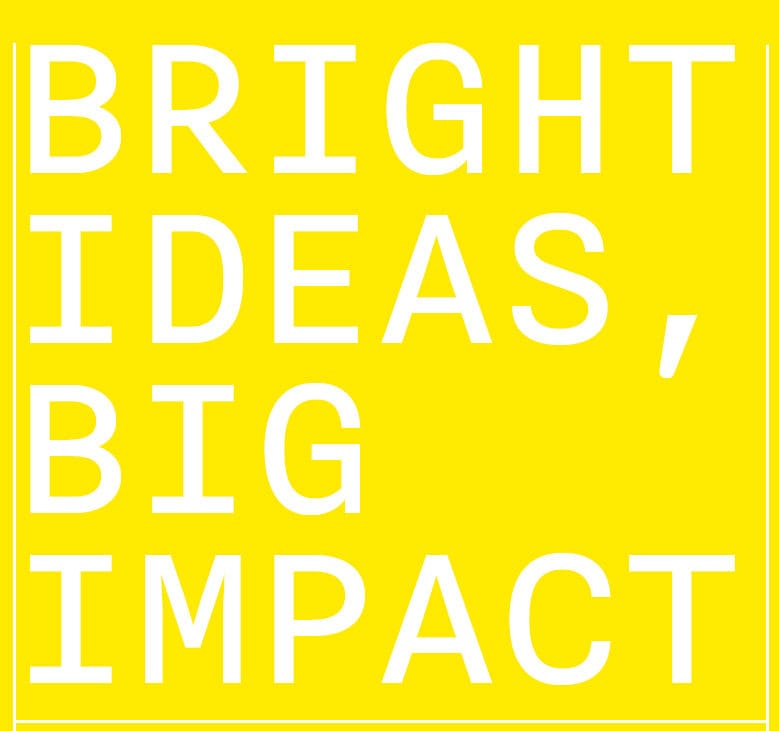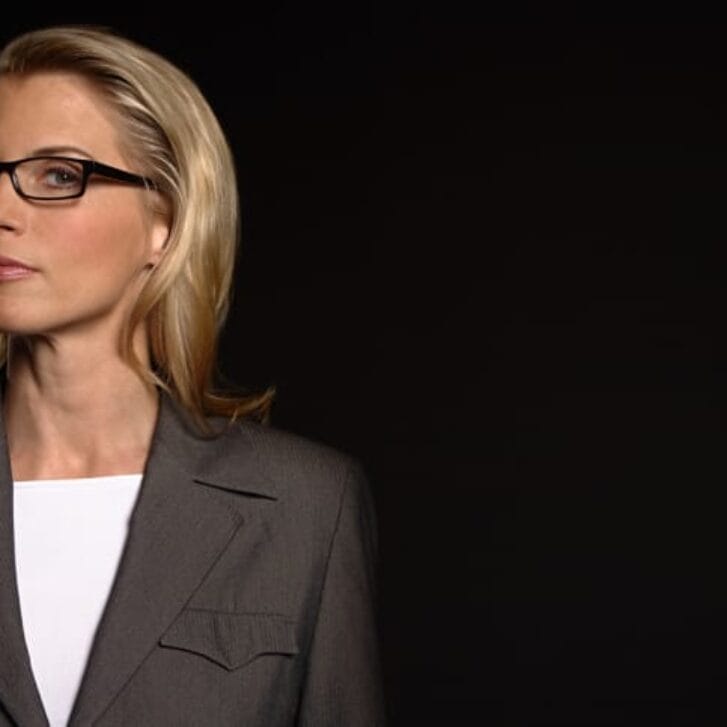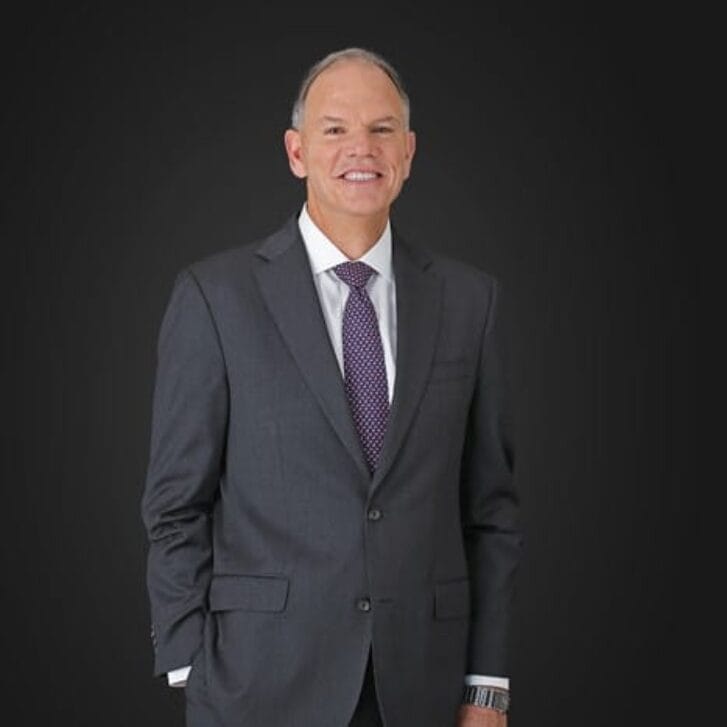When people talk about how Wharton produces world changers, it’s safe to say that most of them are thinking about MBAs, the C-suite crowd, the startup pioneers, the titans of finance. Fair enough. But the truth is, Wharton’s doctoral program—one of the largest of any top business school in the country—has produced (and is producing) some of today’s brightest academics. They’re the people who are asking big questions and finding the answers. They’re breaking new ground on everything from better negotiation techniques to understanding the benefits of humor at the office to developing methods to measure the success of patient care in hospitals … and beyond. It would, in fact, be impossible to track all the ways in which research from the School’s nearly 1,700 PhDs scattered around the globe have shaped best practices and catalyzed innovation. Instead, here’s a snapshot—a tiny, captivating snapshot—of some of the most intriguing, most relevant research from Wharton-educated minds today.

Tae Wan Kim GRW12, Legal Studies and Business Ethics/Associate Professor of Business Ethics at Carnegie Mellon University
THE RESEARCH
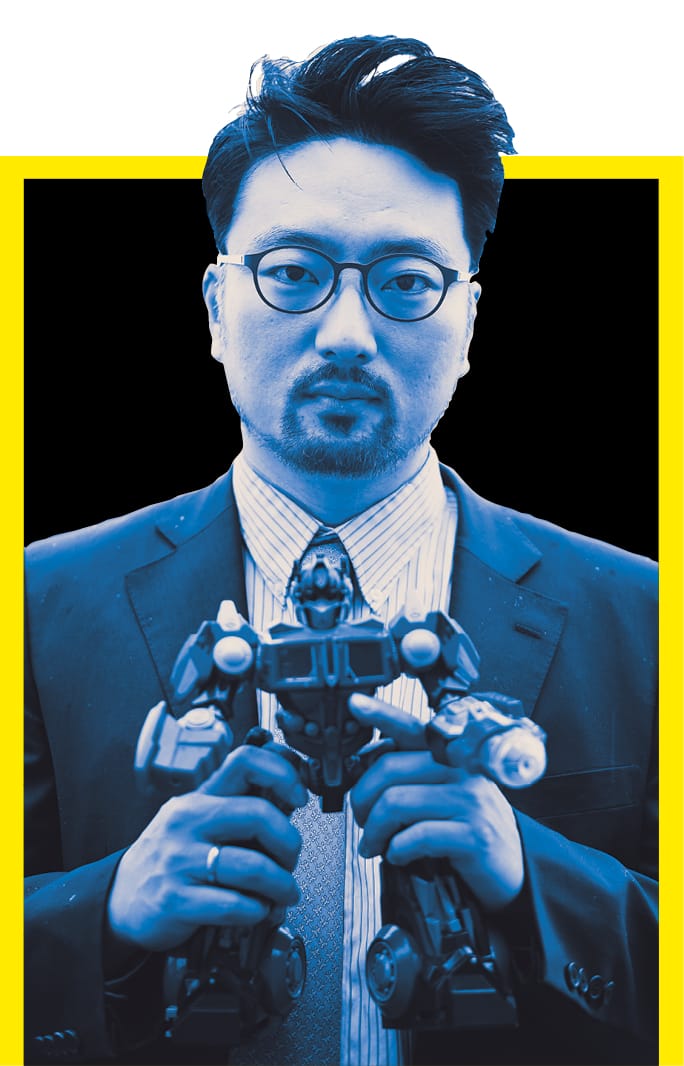
Tae Wan Kim GRW12
“Some say business ethics is an oxymoron,” Kim writes. “It ought not to be.” His work aims to set standards for the ethical responsibilities of businesses and looks at how managers might respond to ever-changing, cross-cultural moral demands. For example: How can companies respectfully lay off workers? Can Confucianism help solve ethical dilemmas in both the Eastern and Western business worlds? Should Facebook offer a meaningful explanation of its algorithms to users? “New technologies have made it more difficult than ever before to hold businesses accountable,” Kim says—which may be one reason why business schools have shown increasing commitment in recent years to supporting research like his. Or why, as Kim puts it on his website, “ethical is the new black.”
THE PATH HERE
“My father went to jail when I was a high-school student. He ran a noodle company and used an ingredient for which statutes or precedents were unclear, taking advantage of loopholes. I learned several lessons from his experience that were further clarified throughout my academic journey: First, the black letter of the law is incomplete, and courts often rely on the spirit of the law—i.e., ethical principles. Second, government cannot be relied on to solve all problems—a business enterprise has its own role and responsibilities. Finally, any ordinary person like my father can make a terrible business decision. Building on these lessons, I have since committed myself to systematically understanding the contours of ethical principles and the purpose of business in society.”
UP NEXT
How a Confucian model of authority can help address the team production problems of opportunism and governance; the development of machine business ethics (i.e., teaching ethics to AI); and the right to explanation in the age of automation.

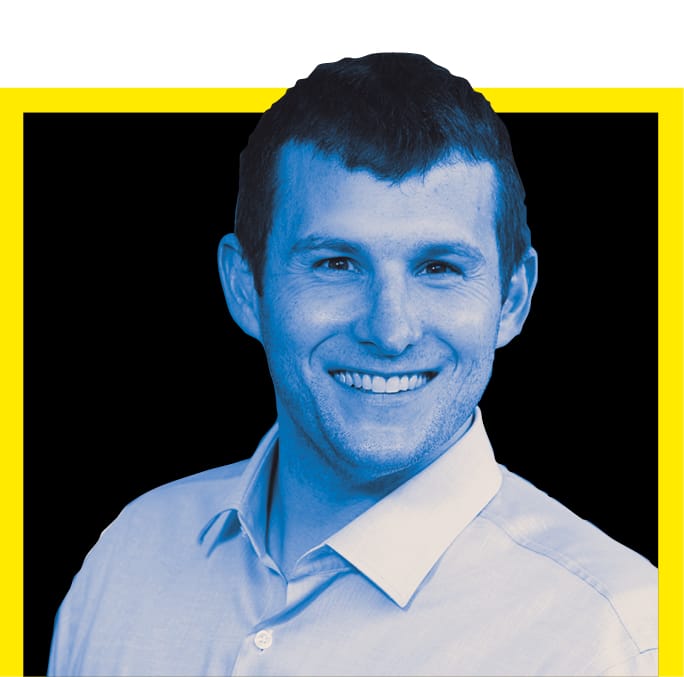
Justin Berg GRW15
Justin Berg GRW15, Management/Assistant Professor of Organizational Behavior at Stanford University
THE RESEARCH
Berg’s name sound familiar? That’s likely because his fascinating study of Cirque du Soleil performers popped up all over the place last year, from the Atlantic to Fast Company to Inc.com. His research focused on how people might be able to predict the success of novel ideas—a topic with practical implications for anyone involved in business. In his studies, Berg noted that creatives (in this case, the performers) weren’t great at predicting the success (audience reaction) of their own new ideas (new acts), as they tended to give themselves too much credit. The managers, he found, also weren’t great at predicting the most successful new ideas, mainly because they too often assumed that a novel idea would fail. But the creatives who were judging their peers’ ideas? Those workers were generally very good at forecasting which new ideas would succeed.
THE TAKEAWAYS
Managers who want to be better at forecasting what new ideas are going to succeed should engage more people—specifically, creative idea-generators—in the evaluation, Berg says. Another finding: Keeping managers engaged creatively helps them immensely in their forecasting abilities. And while Berg allows that not every manager will be able to consistently balance the dual role of managing and idea-generating, “Just having them spend some time generating their own new ideas may help their forecasting about employees’ ideas.”
STAY TUNED
One exception to creators’ ability to pick out good ideas, Berg says, were those who’d achieved their own success in the past with ideas generally regarded as bad ones. “Basically, these creators got lucky, but they attributed their success to their own taste and skill.” In short? It’s hard to learn from one’s past, Berg surmises, because it’s not always clear why an idea succeeds. He’s currently looking at how people sustain creative success—or not—throughout their careers.
MAKING WORKERS HAPPIER
In unrelated research, Berg is also well known for co-creating the trademarked Job Crafting Exercise, an interactive tool aimed at helping people generate a “visual plan” for restructuring their jobs to suit their strengths and passions—basically, helping employees figure out how to achieve greater fulfillment and effectiveness in their work.

William Boulding GRW86, Marketing/Dean and J.B. Fuqua Professor at Duke University’s Fuqua School of Business
THE ROLE
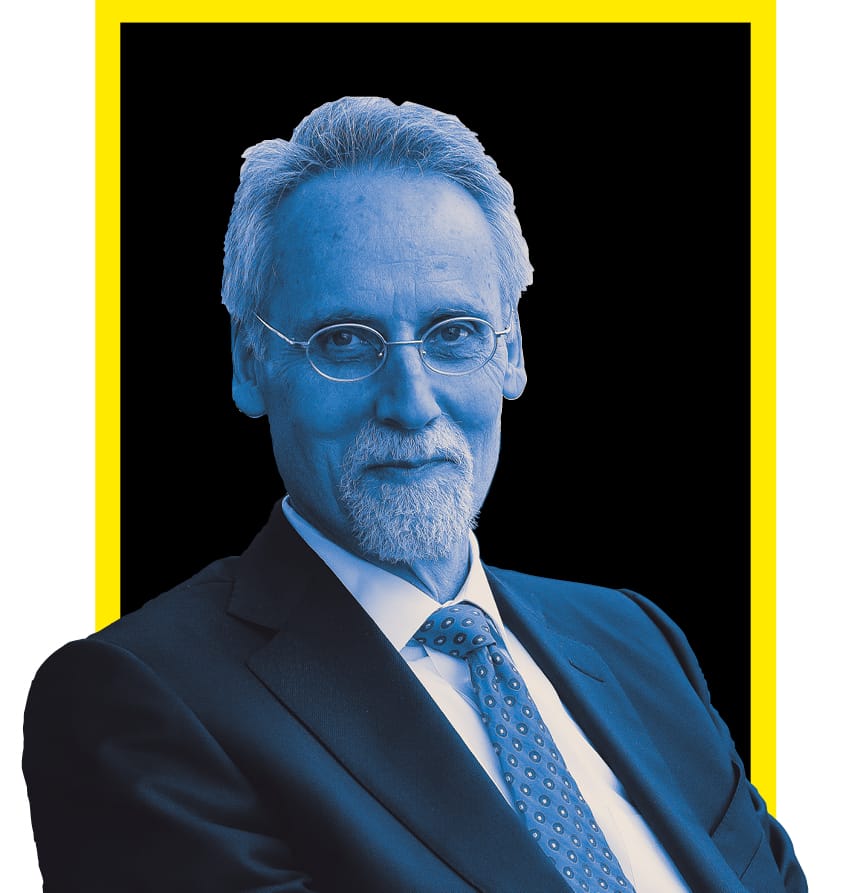
William Boulding GRW86
More like roles. Boulding, who’s been the Fuqua School’s dean for seven years now, is also still a professor, a researcher (interested in the intersection of management, marketing, and strategy), a regular voice in print and TV media, and a prolific writer, covering everything from how business schools should respond to Brexit to the relationship between a hospital’s financial health and the quality of its care. One of his driving guides is seeing business as a powerful change agent. “Given that we have an opportunity to view business as a transformational engine,” he says, “let’s make sure that transformation makes the world a better place, rather than deteriorating it in some way.
GETTING POLITICAL
“One thing that’s different now about how we think of educating future business leaders,” Boulding says, “is the realization that there’s been increasing intersection between the worlds of business and politics. If you’re leading an organization these days, you have to be aware that there’s permeability between forces of society and what happens in the walls of your business. You need to be prepared to think through how you’ll respond in ways that enable you to do a better job of leading your own organization while also maybe serving as a role model for others to see.”
ON TECH AND BIG BUSINESS
Another challenge/opportunity for educators and practitioners alike, Boulding says, is innovation in the era of AI, machine learning, and robotics. “We have to be aware of the interface between tech and humanity,” he says, “and part of that is preparing our students to understand the world of big data and machine learning, to understand the implications of those things on the world, and then to understand how that affects how you lead teams and drive innovation. In Silicon Valley, what you hear is that the limiting factor on innovation isn’t the technology. It’s the leadership. We need people to be comfortable with the interface between leadership and tech, which is hard. But then, if it were easy, it wouldn’t be as fun to work on.”

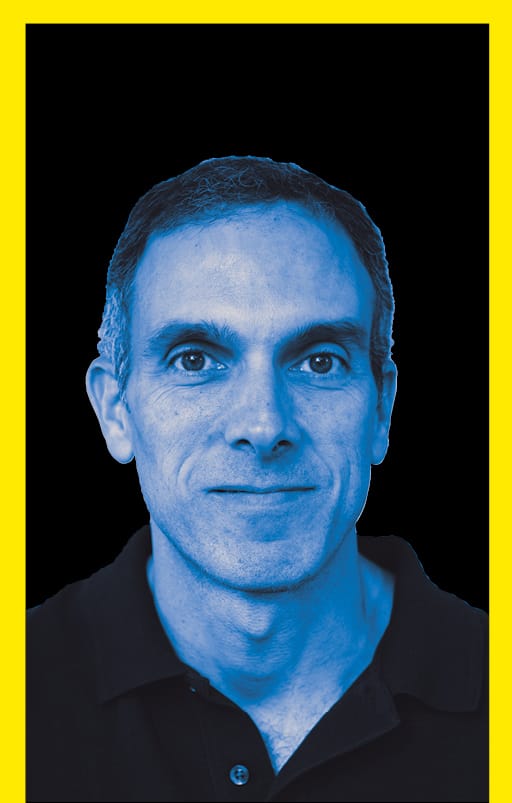
Gérard Cachon ENG89 W89 GRW95
Gérard Cachon ENG89 W89 GRW95, Operation and Information Management/Professor of Operations, Information, and Decisions; Professor of Marketing; Vice Dean of Strategic Initiatives at Wharton
Maurice Schweitzer G91 GRW93, Operation and Information Management/Professor of Operations, Information, and Decisions; Professor of Management at Wharton
Alison Wood Brooks GRW13, Operation and Information Management/Assistant Professor of Business Administration at Harvard Business School
Is trash-talking at work a good thing? Does surge pricing benefit the consumer? Can emotions be helpful in the negotiation process?
The questions Gérard Cachon, Alison Wood Brooks, and Maurice Schweitzer ask in their research may seem to have little in common, but the thread that binds these three together (beyond their shared degrees) is that their rigorous research doesn’t just produce fascinating results—it produces pragmatic, frequently concrete takeaways for business leaders, for workers, and, sometimes, just for human beings.
Cachon—who literally wrote the book on operations management, in the form of two popular textbooks many Wharton grads know well—deals in supply chain management, operation strategy, and pricing, with a focus on how technology is transforming competitive dynamics and encouraging new operational strategies. He’s written about pricing in self-scheduling platforms like Uber and Lyft (surge pricing benefits both consumer and provider in these models, he found) and how severe weather negatively affects automobile assembly productivity (an increasingly relevant topic in an era of climate change, as his paper noted). In fact, real-life application is nearly always the point of Cachon’s research: “I think about what one or two things I want to say that someone will find relevant to the world and try to articulate that in a way that’s important and clear to high-level managers.”
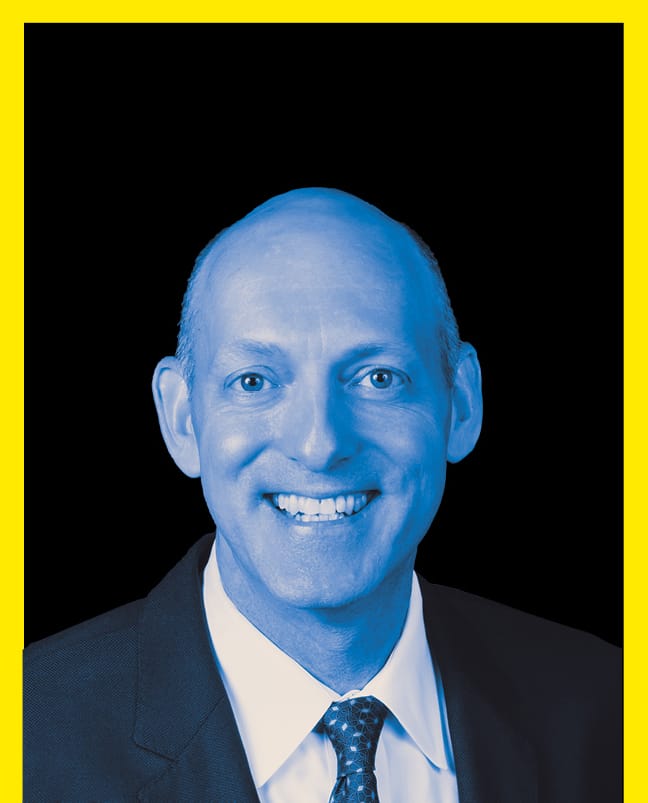
Maurice Schweitzer G91 GRW93
On the more behavioral side of the management and decisions coin sit both Brooks and Schweitzer. (In fact, Brooks says, she chose Wharton in large part to work with Schweitzer, who was “conducting research I admired and aspired to do myself.” The two have since paired up on several studies.) Brooks’s research deals in the psychology of conversation, the behavioral consequences of anxiety, and how emotions influence how we think and interact with others—particularly in the workplace. “I try to study behavioral phenomena that are real, relatable, and believable—perhaps even obvious, in retrospect—but no one has identified or studied them before,” she says. “My job is to take the hunches, questions, and latent suspicions most people have about other human beings that they may not even know they have—Why does my girlfriend always text me instead of calling? Why are some people more awkward than others?—codify them, and collect rigorous data to try to understand them.” A few of her greatest hits: Her work on how to manage emotion during negotiation appeared in Harvard Business Review; the Wall Street Journal covered her take on more productive office conversation; and Bloomberg View, New York, and NPR all highlighted a study she co-authored showing that asking questions makes people like you more.
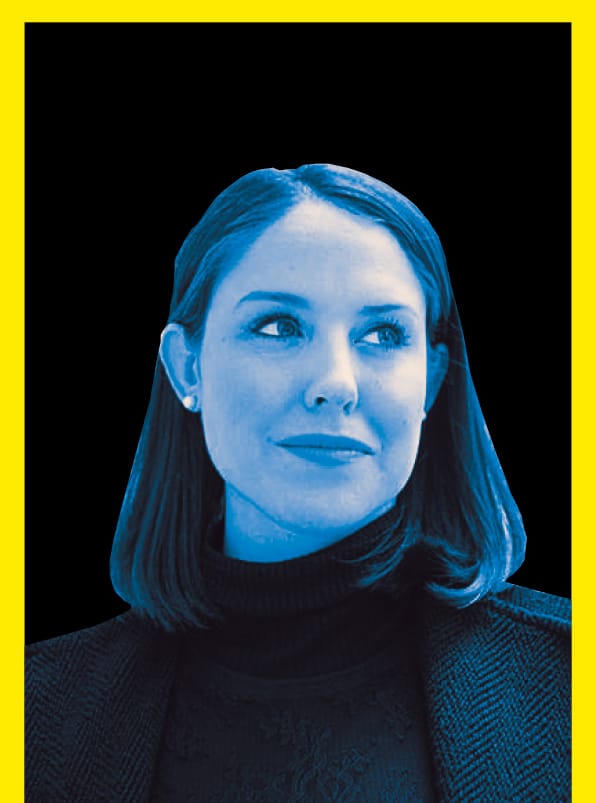
Alison Wood Brooks GRW13
Schweitzer’s focus is on emotions, ethical decision making, and the negotiation process. This has played out in the sorts of studies that have mass appeal: the trash-talking study, for instance (in certain contexts, trash-talking can be a great thing for productivity, he argues); why diversity training doesn’t work; the benefits and pitfalls of using humor in the office; and the downsides of exhibiting too much happiness. (Spoiler: People think you’re naive and try to exploit you.) Friend & Foe, the book Schweitzer co-authored, aims to use much of his research to instruct readers how best to use both cooperation and competition in work situations.
These days, Schweitzer is working on more humor research—specifically, looking at how comedy influences status (a lot) and the link between humor and power. A little advance advice? “Pay attention to the use of humor,” he says. “As you prepare for an interview, it may be wise to think about and test out jokes. As you select employees, it may be worth choosing them in part based on their sense of humor.”

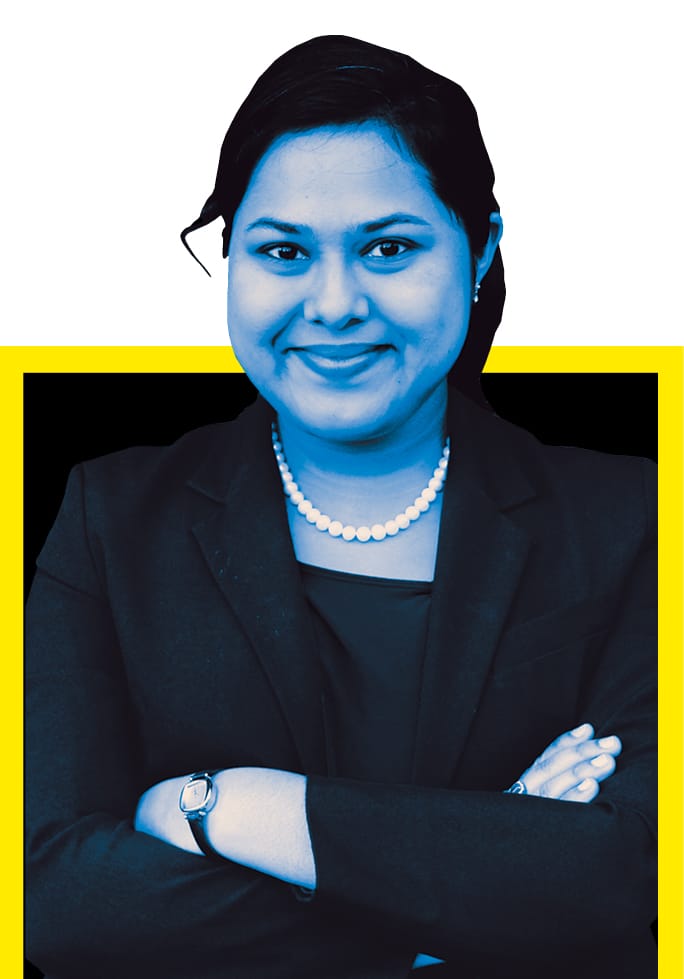
Anita Mukherjee GRW14 WG14
Anita Mukherjee GRW14 WG14, Applied Economics/Assistant Professor of Risk and Insurance at the Wisconsin School of Business
THE RESEARCH
Mukherjee focuses on the impact of social insurance and public policies on vulnerable populations, especially within the realms of health and aging. In one prominent study of private prison contracting, Mukherjee found that when prisons are paid per prisoner per day, prisoners are kept longer on average than those in public prisons—a finding that had never before been documented. In the past, she’s also researched how to grow the appeal of micro-pensions for India’s poor, and these days, she’s deep into research on the effects of access to the opioid blocker naloxone (a.k.a. Narcan) on drug use, overdose, and crime rates.
A UNIFYING THEME
“Overall, when I’m choosing what to research, what I’m thinking about are large policies that affect a number of people in this country and beyond,” she says. “I’m also looking for settings where economics would predict something that people haven’t really looked at yet, helping to quantify concerns that people already have.” Take the opioid study: While some state policies lean very much toward easy access for the life-saving drug, there are concerns in the policy world that easier access increases both addiction and crime. Using data culled from the CDC and police departments across the country, Mukherjee and a research partner are examining whether those concerns are valid. (Short answer so far? The worries do indeed have merit.)
NEXT UP
Mukherjee is looking at how Social Security income affects intergenerational behavior. “Given the likely changes that will need to happen to Social Security to keep it solvent,” she says, “I’m interested in the impact of those changes on the next generation, particularly the children who are caregivers to aging parents.”

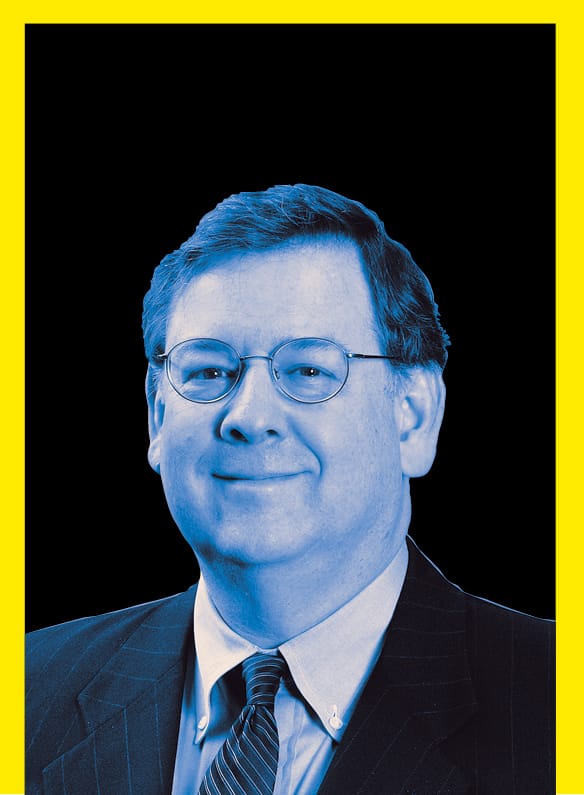
Jeffrey Silber GRW90
Jeffrey Silber GRW90, Health Care Management and Economics/Professor of Pediatrics and Anesthesiology and Critical Care at Perelman School of Medicine and Professor of Health Care Management at Wharton at Penn; Nancy Abramson Wolfson Endowed Chair in Health; Director, Center for Outcomes Research, Children’s Hospital of Philadelphia; Senior Fellow, Leonard Davis Institute of Health Economics
Rachel Werner M98 RES01 GRW04, Health Care Management and Economics/Professor of Medicine and Director of Health Policy and Outcomes Research at Perelman School of Medicine and Professor of Health Care Management at Wharton at Penn; Core Faculty, Center for Health Equity Research and Promotion, Veterans Affairs Medical Center; Senior Fellow, Leonard Davis Institute of Health Economics
Kevin Volpp M96 G97 GRW98, Health Care Management and Economics/Founders President’s Distinguished Professor of Medical Ethics and Health Policy at Perelman School of Medicine and Professor of Health Care Management at Wharton at Penn; Vice Chair for Health Policy in Perelman’s Department of Medical Ethics and Policy; Director, Center for Health Incentives and Behavioral Economics; Senior Fellow, Leonard Davis Institute of Health Economics
It’s no surprise, really, that combining the powerhouses that are Wharton and Penn Med leads to innovative, life-altering research in the medical arena. Just consider the attributes of doctors who are also data analysts; they’re health economists who have also worked—and in some cases continue to work—directly with real-life patients. Jeffrey Silber, for example, is an international authority on outcomes measurement in health care. Some of his groundbreaking work introduced a new way to fairly and accurately rate and compare hospital care by “matching” groups of patients between hospitals (apples to apples, if you will). The research showed definitively not only that there are differences in quality across hospitals, but also, as he told Knowledge@Wharton, that “there are better ways to measure them than what we’ve been doing up until now.” Silber is also one of the co-creators and the director of the Center for Outcomes Research; affiliated with both Penn and the Children’s Hospital of Philadelphia, it’s where new metrics are developed and tested to help produce fairer, more accurate, more effective information about the quality of care in everything from pediatric asthma cases to hip-fracture surgery outcomes.
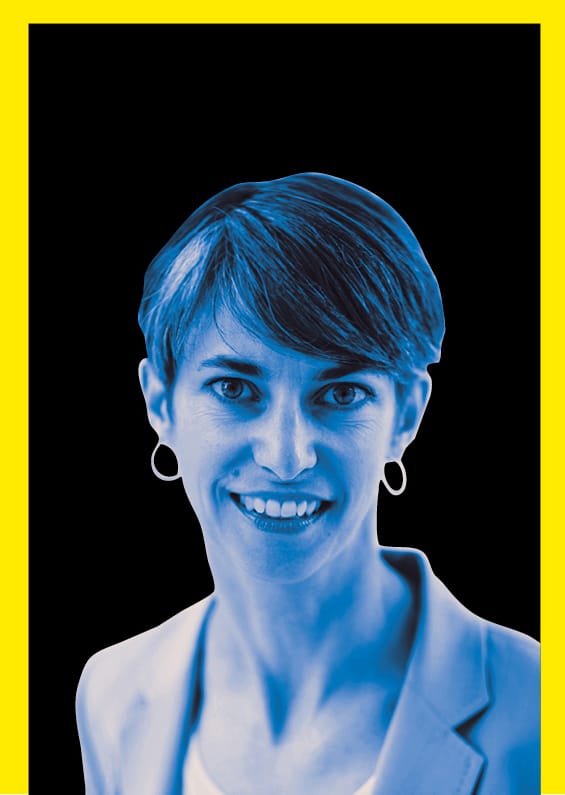
Rachel Werner M98 RES01 GRW04
Rachel Werner—who is also a practicing internist—researches the effect of health-care policies and delivery systems on the quality of care. In one study looking at the unintended consequences of quality improvement incentives, Werner famously noted that the public release of “report cards” on medical care led some physicians to avoid high-risk patients in order to improve their ratings, which worsened racial disparities in care. She has also delved into issues like price transparency (and where it can be improved) and nursing home ratings (and their effects on the consumer). “The thing that motivates a lot of my research is wanting to have a rigorous evaluation of the policies and the systems that are put in place to improve patient care,” she says. “Think about drugs and how much goes into testing those drugs to see how they’ll affect patients. Often, we don’t put policies through the same rigor; we don’t always know if they’ll work. So most of what I’ve done is evaluation of policies to see if they benefit or hurt patients.”
Meantime, you might have read about Kevin Volpp’s work in the New York Times, which covered his research on how financial incentives—cash!—lead to better results in smoking cessation and weight loss. Or maybe you’ve heard him on NPR talking about why people don’t take their medicine even when they have reminders. Volpp’s studies often make the rounds in mainstream media as well as in the academic and policy worlds, in part because he tackles some of the most entrenched, ubiquitous health issues in America today (cardiovascular disease, smoking, obesity, health plan design) and in part because he takes the rather uncommon tack of applying behavioral economic strategies to health behavior and health outcomes.
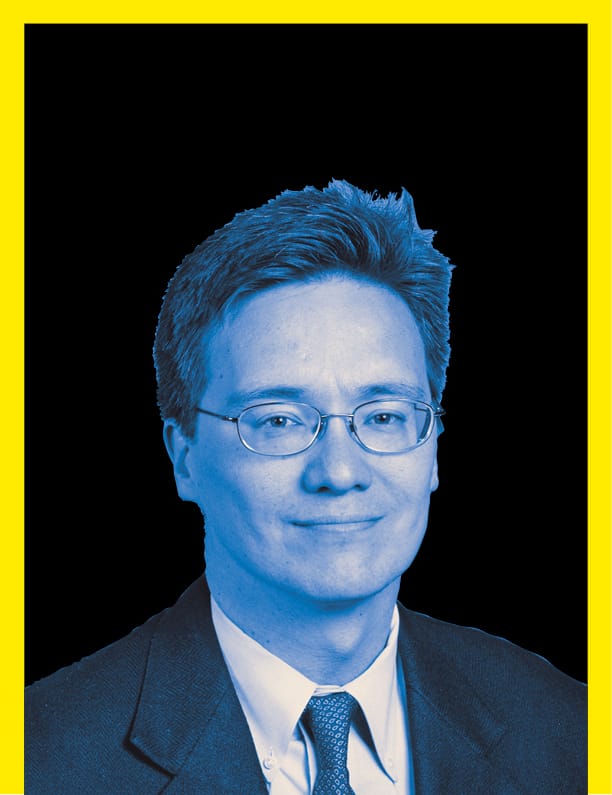
Kevin Volpp M96 G97 GRW98
As a founding director of the pioneering Center for Health Incentives and Behavioral Economics at Penn—one of just two NIH centers focusing on behavioral economics in the health arena—he’s hoping to inform public policy with research and to touch individual lives with the work that happens there.
“Being a physician and being able to care for individual patients is very powerful, and there’s nothing that replaces that interaction,” he says. “But if you’re interested in changing how the system works and caring for new populations of people, then being a social scientist is useful, because you learn ways of approaching data and building evidence that would be much harder to do if you had just trained as a physician.”

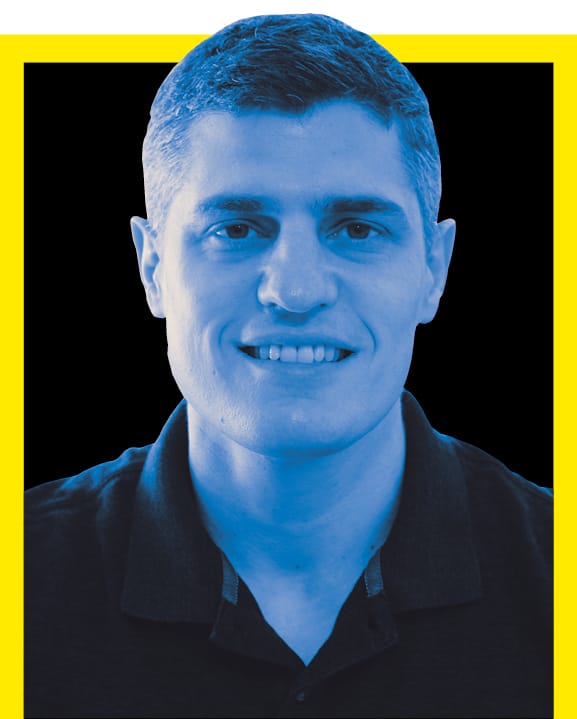
Itamar Drechsler ENG02 W02 G03 GRW07 GRW09
Itamar Drechsler ENG02 W02 G03 GRW07 GRW09, Finance/Associate Professor of Finance at New York University’s Stern School of Business
THE RESEARCH
Drechsler’s work lies at the intersection of finance and macroeconomics. In fact, he says, he aims to explain the “magic” of how the Fed changing the interest rate affects the flow of money into the financial system and the price of liquidity in the economy (via what he and his co-authors dub “the deposits channel”). He also provides evidence that bank bailouts triggered the rise of sovereign credit risk, and models how uncertainty and volatility affect the prices of financial assets. “Ever since the [U.S.] financial crisis,” he says, “there’s a correct impression among people that there’s an important intersection between financial markets, the Fed, and the ‘real’ side of the economy—jobs and production.” And yet, he says, it’s not a terribly well populated area of study: “There’s a lot of room left for thinking about how one side influences the other.”
SHARPENING OCCAM’S RAZOR
“One of the things I like about this field is that we’re working with very complicated things, but in economics, people aspire for simplicity. The simpler it is, the more likely it is to be true. So presenting simple and clear evidence is something to aspire to, where you can really put your money where your mouth is.”
SCHOOL SPIRIT
“I’m like a Penn poster child,” Drechsler says with a laugh. “I did my undergrad there, two masters there, my PhD there—basically every degree except nursing and dentistry. I love the place. It’s like home for me.”
Christine Speer Lejeune is a freelance writer and editor based in Philadelphia.
Published as “’Bright Ideas, Big Impact” in the Spring/Summer 2018 issue of Wharton Magazine.




















